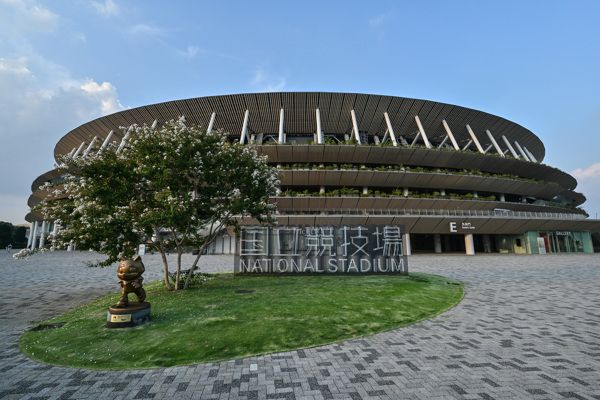A strong focus on renewable energy sources, waste reduction efforts and raising awareness are some of the key sustainability initiatives at the World Athletics Championships Tokyo 25, which gets under way in the Japanese capital on 13 September.
Some of what you can expect on the sustainability front over the next two weeks in Tokyo:
Developing ‘The Tokyo Model’ for sustainability, with Platinum ambitions
The local organising committee of the WCH Tokyo 25 is the first World Athletics Championships host to fully adopt the Athletics for a Better World (ABW) Standard, the system implemented by World Athletics in 2024 that evaluates efforts by events to reduce their environmental impact and increase their local economic and social benefits.
The WCH Tokyo 25 sustainability plan, created in alignment with the ABW Standard, charts a path towards Platinum level certification, the Standard’s highest achievement, and with it, the creation of ‘The Tokyo Model’ – a new global benchmark for delivering an environmentally and socially responsible international sports event.
A focus on renewable energy sources and biofuels
Biofuels will power 100% of the temporary generators used to provide power for broadcasters, a first for a World Athletics Championships. Additionally, all electricity purchased for the championships will be certified renewable, sourced via local green power certificates.
All cars, small shuttles, motorcycles and bicycles from the official vehicle fleet provided by World Athletics Partner Honda will be either electric, hybrid or fuel cell (green-powered hydrogen) powered, another first for a World Athletics Championships.
More than 70% of spectators are expected to use public transportation to reach the Japan National Stadium, further reducing the event’s carbon footprint.
Bottle to Bottle recycling system
A circular ‘Bottle to Bottle’ recycling system, developed in cooperation with event sponsor Otsuka Pharmaceuticals, has been put in place where plastic bottles used at the stadium and training venues will be collected and recycled into new plastic bottles. A robust waste sorting system has also been introduced.
To ensure fan safety, spectators are also encouraged to bring their own water bottles and use the water refill stations that will be located around the stadium area.
Sustainable aviation fuel awareness and supply chain campaign
The LOC joined a Tokyo Municipal Government cooking oil recovery project launched in 2023 that encourages businesses and communities to help build a supply chain for domestically produced Sustainable Aviation Fuel (SAF), a low-carbon non-petroleum-based jet fuel made from renewable sources like waste oils, food and feed crops. When more widely implemented, use of SAF can ultimately reduce the carbon emissions of aviation fuel by up to 80% over its lifecycle. World javelin champion Haruka Kitaguchi helped promote the WCH Tokyo 25 initiative.
Next-generation solar cells demonstration
The stadium park area will be used to demonstrate practical applications of Next-Generation Solar Cells, a solar power technology developed in Japan. The cells are 20 times thinner than regular solar panels and can be plastered over stadiums, airports and office buildings, enabling mass adoption to solar power across large parts of the country. The LOC will install lights, powered by the cells, along the spectator route to the stadium which will remain in place after the championships.
A dedicated sustainable procurement policy was developed, with World Athletics guidance, to inform all sourcing decisions, prioritising environmentally responsible products when available. The policy also includes reuse and repurposing initiatives that engage with various community and regional groups.
The LOC has also committed to championing diversity, equity and transparency throughout its planning and operations.
Athlete meet & greets, sustainability ‘tours’
The LOC and World Athletics will host sustainability awareness-raising activities for spectators, quizzes (and prizes), and meet & greets with athletes over the course of the championships. A regularly updated schedule of the activities and athlete appearances, which will centre around the LOC and Tokyo Municipal Government booth at the stadium park, will be published on the WCH Tokyo 25 website.
Designated Sustainability Day
Saturday 20 September has been designated as the event’s Sustainability Day, an opportunity to spotlight some of the the LOC’s sustainability initiatives and those of the event’s partners and sponsors. A plogging event – a fitness activity that combines jogging or running with picking up litter – has been scheduled for the day, which coincides with the United Nations World Cleanup Day.
A comprehensive sustainability report will be published after the championships, providing insight and analysis of the LOC’s sustainability impact.
Download the WCH Tokyo 25 Sustainability Media Guide.
World Athletics


AloJapan.com